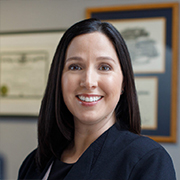
What is a 1031 Exchange? Internal Revenue Code Section 1031 allows owners of investment property to sell or relinquish certain qualified property and reinvest proceeds from that property in a replacement property, subject to time limitations and other regulations.
How might a 1031 Exchange benefit me? Deferral of ordinary income, depreciation recapture and/or capital gain taxes frees up funds to invest in other/additional properties. 1031 Exchanges can be a wealth building tool in terms of cash flow and net worth increases.
Can I use a 1031 Exchange to swap my primary residence for another home? No. A 1031 Exchange is not for personal use; only for investment and business property.
This document is intended for informational purposes only and is not legal advice or a substitute for consultation with a licensed legal professional in a particular case or circumstance.
Wendy represents clients in both Illinois and Wisconsin in a wide variety of commercial real estate and real estate finance transactions. In addition to handling acquisitions, dispositions and leases, Wendy also advises lenders on loan transactions, loan workouts, loan restructurings, forbearance and pre-foreclosure matters. If you need assistance with a related matter, contact Wendy

